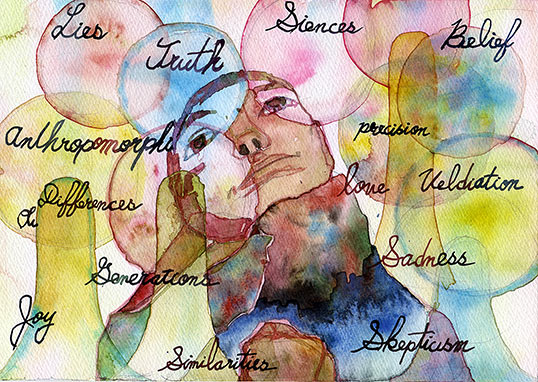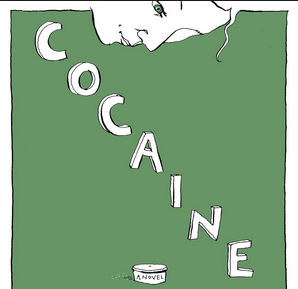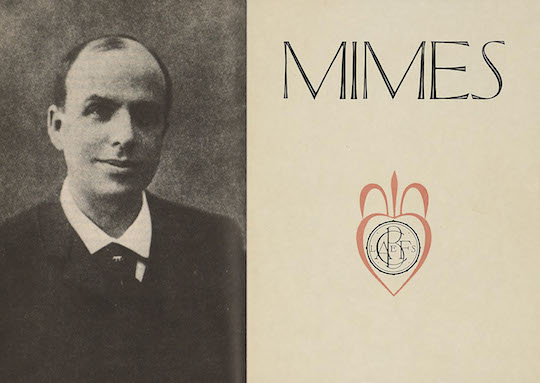All’s fair in lit and war. At the Los Angeles Review of Books, Kayla Williams disputes the assertion that all war literature is written by men, providing a heavy-hitting list of contemporary war literature penned by female authors to prove her point (P.S. Here’s how not to review women’s writing). Here’s North Korea‘s former poet-laureate-turned-defector Jang Jin Sung in conversation about poetry and politics. Twenty-five years after the Tiananmen Square crackdown, artists in China still face imprisonment by engaging in civil (artistic) disobedience (by the way, here’s a great piece commemorating the landmark protest). And finally, remembering slain Iranian-American singer and writer Ali Eskandarian as a punk Beat novelist. READ MORE…
Posts by Patty Nash
Weekly News Roundup, 6th June 2014

This week's literary highlights, hyperlinked from across the world
Weekly Roundup, 31st May 2014: Franz Kafka Prize, Amazon’s mean, Schadenfreude in America

This week's literary highlights from across the world
Translation-happy readers often consider self-publishing, and its funny half-brother, digital publishing, the saviors of independent literature, but not all would agree. At The Guardian, Alan Skinner muses if the so-called “revolution” is a reactionary phenomenon, after all.
In terms of changing reading habits, there’s no bigger word than Amazon. The Seattle behemoth sure gets a lot of (well-deserved) flack in the lit world, and this week reminded us why. Literary nonprofits grapple with the ethics of accepting financial support from the business giant, and publisher Hachette stands to lose in its anti-Amazon scuffle—here’s a close reading of Amazon’s anti-publisher statement. Meanwhile, decidedly non-indie bestselling author James Patterson donates a hefty sum to independent bookstores all across the United States. READ MORE…
Weekly News Roundup, 23rd May 2014: Good news for translation, breaking off mid-sentence

This week's literary highlights from across the world
Hard to believe we’re approaching the end of May—only a month until summer’s official starting date. Still, spring is springing: read Karl Ove Knausgaard’s greatest sign of spring. And while we’re on the topic of the Norwegian sensation: some love him. Others just don’t get the hype. READ MORE…
Weekly News Roundup, 16th May 2014: Robot libraries, Quotable cups

This week's literary highlights from across the world
Beware, multilingual pedagogues: your job may be outsourced soon—to a robot. Robots are now check-out-able at the Chicago Public Library—be sure to pick one up alongside your non-electronic devices. (Perhaps you can check out the world’s smallest comic strip, etched on a piece of human hair, one day). Interesting timing on this one, in light of the (totally obvious) discovery that active, engaged learning consistently beats passive learning methods. READ MORE…
Weekly News Roundup, 9th May 2014: Happy Libraries, Sad Pomegranates

This week's literary highlights from across the world
You can hear the cheers from here! After widespread outcry and a petition with signatures from the likes of Tom Stoppard, Jonathan Lethem, Salman Rushdie, Susan Bernofsky, and Annie Proulx, the New York Public Library has squashed its plans to do away with the book stacks in its 42nd Street edifice. If you’re outside the New York area, chances are you can still partake in the Worldwide Library, which is finally going digital—not without a hitch, however. READ MORE…
Issue Spotlight: “Brief Notes on Science”

"We have seen how it is originally language which works on the construction of concepts, a labor taken over in later ages by science."
Gonçalo M. Tavares’ “Brief Notes on Science,” translated by Rhett McNeil in our newest issue, is a curious venture into the semantics of scientific enterprise. With wit, insight, and exactitude, the allegorical tries on a technical job: defining and sketching out the surprisingly ambiguous nature (and purpose) of science. READ MORE…
Like the quarterly journal (now open for submissions), Asymptote blog is devoted to publishing creative and critical pieces related to world literature, culture, and translation—which means we love to read and publish original pieces and translations by writers like you. So if you have something to say, read on and get in touch!
Big, big news in translation-land this week: the 2014 winners of Three Percent’s Best Translated Book Award were announced! Asymptote-rs abound: the winner in the fiction category is Seiobo There Below, written by Hungarian author, Asymptote alum, and last year’s winner László Krasznahorkai, translated by Asymptote’s very own (past blog contributor!) Ottilie Mulzet. In the poetry category, Italian poet Elisa Biagini snagged top honors for A Guest in the Wood, team-translated by Diana Thow, Sarah Stickney, and Eugene Ostashevsky: check out Asymptote’s feature here! READ MORE…
In Review: Pitigrilli’s “Cocaine”

A new translation of Pitigrilli's "Cocaine" is as titillating as its title
It should come as no surprise—if titles mean anything at all, that is—that Pitigrilli’s Cocaine was banned shortly after its 1921 publication. The slim Italian novel is not short on the white stuff, and it doesn’t skimp on the excesses we associate with its sniffing: sex, orgies, general underworld shadiness, all glimmering with the luster that illicit substances (if only through their very illicit-ness) can provide.
To readers in 2014, the novel’s purported depravity may appear mellowed, but Cocaine shocks the system all the same. The real blow in reading this nonagenarian novel, rereleased in a new translation by Eric Mosbacher through New Vessel Press, is its stomach-turning linguistic smarts that elevate this by-turns insightful and nonsensical tale to M.C. Escher-esque levels of depth. Cocaine isn’t about the drug, after all: storming through the not-quite surreal, the book reveals the addictive authority of the words we use.
Weekly News Roundup, 25th April 2014: Gabo and Shakira, Books and Roses

This week's literary highlights from across the world
Strong voices in poetry and protest, remembered: this week marked the unfortunate loss of two poetic voices in protest. Romanian poet Nina Cassian sought exile in the United States after her poems satirizing the Romanian regime stepped on too many toes. Doris Pilkington Garimara exposed systematic injustice toward the Aborigines in Australia most famously through her book, Follow the Rabbit-Proof Fence. It may have happened last week, but the literary world is still reeling from the death of Colombian writer Gabriel García Márquez. In the New York Times, Michiko Kakutani remembers García Márquez’s memory while Salman Rushdie asserts that Gabo was “the greatest of us all.” We might see more from him, still: an unpublished excerpt, En Agosto nos Vemos. Or step back in time and read the magical realist’s profile on fellow Colombian pop sensation, Shakira. READ MORE…
Marcel Schwob’s “Mimes” – Prologue, Mime I

Post one of Asymptote Blog's serial translation of a hallucinatory, undiscovered French work by a revered fin-de-siècle author
Read all the posts in Asymptote’s “Mimes” translation project here.
“We rarely live our own life with pleasure. We almost always try to die of a death other than our own.” – Marcel Schwob, Spicilège
“Nous vivons rarement avec plaisir de notre vraie vie. Nous essayons presque toujours de mourir d’une autre mort que la nôtre.”
Marcel Schwob, a Jewish French writer beloved by Alfred Jarry, Jorge Luis Borges, and Michel Leiris, was born in 1867 and died at an early age in 1905. Scholar of ancient Greek and Latin literature, translator of Robert Louis Stevenson and Thomas De Quincey into French, specialist in fifteenth-century French literature (especially the poetry of outlaw poet François Villon)—Schwob steeped himself in the literature of the past while defying countless literary and philosophical boundaries in his own works. From Le Livre de Monelle, recently translated into English by Kit Schluter, which so influenced Michel Leiris that Leiris called reading it a “capital event” and based an episode of Aurora around it (Oeuvres, 17), to Schwob’s inquiry into the nature of argot, Schwob’s works mark an unprecedented, important turn in the history of French literature.
Weekly News Roundup, 18th April 2014: Happy in translation land, Don’t call me a storyteller!

This week's literary highlights from across the world
The absolute happiest news of the week? Asymptote’s April issue is out, and it sure is star-studded: our most recent issue features the likes of Nobel laureate Herta Müller; writer, editor, and translator David Bellos; Spanish-language sensation Antonio Ungar, Prix-Goncourt prize carrier Jonathan Littell; up-and-coming Amanda Lee Koe (highlighted in our special Diaspora English-language fiction feature!); Robert Walser Prizewinner Marianne Fritz; and past Asymptote favorite Jonas Hassen Khemiri… among so, so many others—it’s a spectacular issue from top to bottom (we promise we aren’t biased!) and absolutely worth checking out. Blog co-editor extraordinaire Eva Richter tackled some of her personal favorites earlier this week: dive into the issue and discover your own! READ MORE…
Weekly News Roundup, 11th April 2014: Sade goes home, Prizes everywhere

This week's literary highlights from across the world
Good news always seems to come in threes—or fours, or fives… News of this week’s literary accolades struck with some seriously heavy hitters. The Dublin IMPAC Award has announced its finalists, which include five books in translation and a novel by Asymptote interviewee Tan Twan Eng. For this prize, especially, the stakes are quite high: the winning author receives a 100,000-Euro prize, or in the case of a translation, a 75,000-25,000-Euro writer-translator split! Karl Ove Knausgaard, contentious memoirist and nominated for the IMPAC, has been graced with double honors this week: he’s also been shortlisted for the International Foreign Fiction Prize, which historically includes two female Japanese writers as well (a first!): Yoko Ogawa and Hiromi Kawakami. It’s a good week for female writers in general: the prize formerly known as the Orange Prize the Baileys Women’s Prize for Fiction has announced its shortlist. READ MORE…
Weekly News Roundup, 4th April 2014: Wiki-Dictionaries, Muhammed: the Opera, Translating Kafka and Joyce

This week's literary highlights from across the world
Happy April! It’s too late for April Fool’s trickery at the roundup, but the announcement of German publisher PediaPress’ proposal to print out all of Wikipedia—yes, all four million articles, amounting to one thousand volumes and a bookcase eight feet long and 32 feet high—certainly seems like a prank of Rushdie-selfie proportions. READ MORE…

